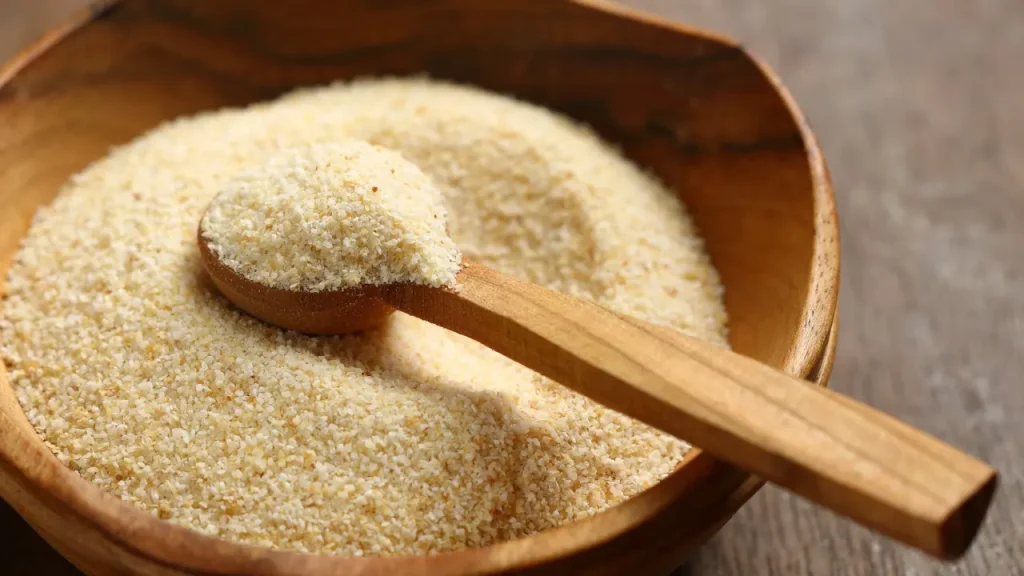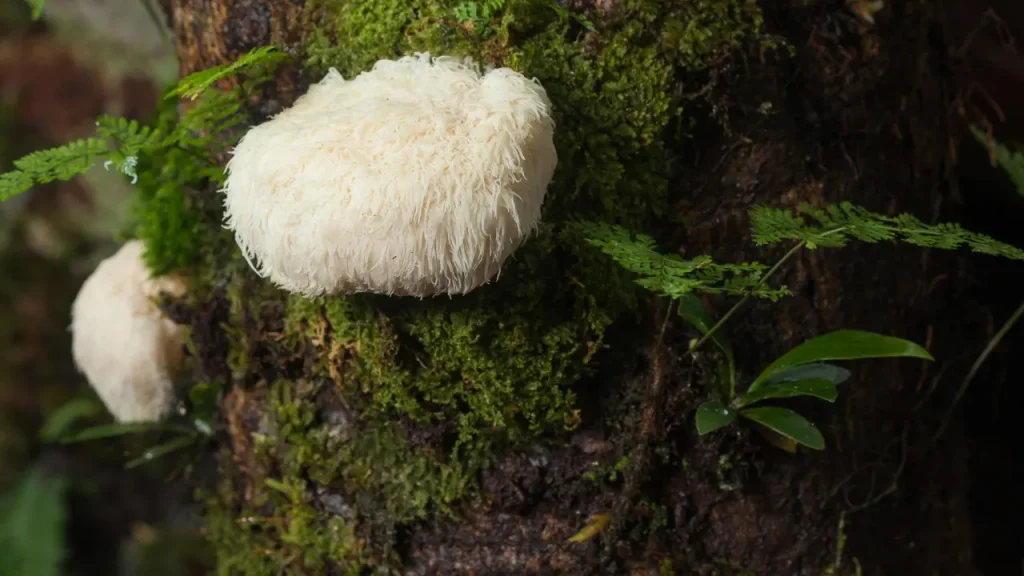Lion’s mane mushrooms have been used for thousands of years, prized by herbalists for their ability to aid in digestive health. Today, lion’s mane is treasured not just as a digestive aid but also for its potency as a nootropic, its support of nervous system regulation, and its ability to alleviate chronic inflammation. SuperFeast, an Australian-based family business, is among the top purveyors of functional mushrooms now on the market. SuperFeast Lion’s Mane Mushroom Extract provides a bevy of benefits, packaged within 100% lion’s mane mushroom powder.
The healing potential of mushrooms has been acknowledged for thousands of years—traditional herbalists and physicians turned to them for their medicinal value, primarily as anti-inflammatories and gut healers, while Hippocrates himself classified them as powerful wound cauterizers long before they were more significantly studied and applied in modern times. Some functional mushrooms are more potent than others, and each typically has targeted effects—no single mushroom species serves as a universal cure-all approach to medicine.
Lion’s mane mushrooms—so named for their shaggy, mane-like appearance resembling a fluffy white lion’s mane as they grow—offer several benefits for the body, particularly concerning their effects on the brain, heart, and gut. Lion’s mane mushrooms can be ground into a powder, mixed into soups, brewed into teas, or turned into tinctures, making them a versatile addition to any daily diet.
Some companies leverage the power of lion’s mane mushrooms more effectively than others; one such company that has successfully harnessed the potential of lion’s mane mushroom powder is SuperFeast, an Australia-based company with over a decade of experience. Before we address the many benefits that come alongside SuperFeast nootropic mushrooms, however, an overview of the workhorse that is the lion’s mane mushroom is in order.
You May Also Like:
Finding The Best Mushroom Supplements For Weight Loss
Paul Stamets Mushroom Supplements vs Troop Mushrooms Gummies
SuperFeast Lion’s Mane Mushroom Extract: In-Depth Review is an original (MushroomMaestro) article.
What are the best lion’s mane supplements made up of?
Sure, lion’s mane is a mushroom and a functional one at that, but what makes up this particular species and provides its powerful attributes? Within the lion’s mane fruiting bodies are a plethora of plant compounds that have beneficial effects on the body. These include antioxidants, anti-inflammatories, nerve growth factors, proteins, and more.
More specifically, the active ingredients in lion’s mane are as follows: polysaccharides, erinacines, hericerins, steroids, alkaloids, and lactones. We’ll discuss the key effects of these components shortly, but suffice it to say that they help protect the body from damage caused by inflammation, free radicals, and oxidative stress, as well as promote cell regeneration in key areas of the brain.
The basics of lion’s mane mushroom extracts:
Better, sharper brain function
Lion’s mane mushrooms have a host of benefits, though they chiefly target brain, gut, and heart health. When it comes to brain health, lion’s mane mushrooms contain two special compounds—hericenones and erinacines—that help stimulate the development of brain cells.
As we age, the brain becomes less adept at forming new cells, which often leads to noticeable cognitive decline in older adults. This decline isn’t uniform—some adults will experience a more pronounced drop in cognitive function, as is the case for those dealing with conditions like dementia or Alzheimer’s. This is where lion’s mane mushrooms may come into play.
As one of the nootropic mushrooms, lion’s mane is among the growing conglomerates of cognitive enhancers that may improve memory, increase mental alertness, boost energy levels, and encourage wakefulness. While some nootropics are derived from pharmaceutical drugs, a nootropic mushroom such as lion’s mane is more readily available to the general public as an over-the-counter supplement and is arguably safer for the everyday consumer.
Early studies have shown that lion’s mane mushroom powder or extracts can reduce the symptoms of memory loss in mice. While this doesn’t guarantee success in humans, too, one 2020 study of patients with mild Alzheimer’s disease found that consuming just 1 gram of lion’s mane mushrooms per day for 49 weeks significantly improved the patients’ cognition compared to those taking a placebo. Researchers have pointed to lion’s mane mushrooms’ ability to prevent damage caused by amyloid-beta plaques, which accumulate in the brain during the progression of Alzheimer’s.
Lion’s mane mushroom powder may also help those battling depression and/or anxiety. While research involving humans remains limited, several studies on animals have illustrated that lion’s mane mushrooms possess anti-inflammatory effects, which, in turn, can reduce symptoms of anxiety and depression in mice.
When it comes to humans, a small Japanese study found that women with various health concerns, including detrimental menstruation-related symptoms and insomnia, reported lower levels of irritation and anxiety after eating cookies containing lion’s mane mushroom extracts.
As mentioned earlier, lion’s mane mushroom extracts can help the brain generate new cells; this not only slows cognitive decline but also helps the hippocampus function more efficiently and healthily. The hippocampus, a complex structure found deep in the temporal lobe, helps the brain process memories, learn, and control emotional responses.
When the hippocampus is damaged or dysfunctional, you may experience heightened anxiety and depressive behaviors, in addition to memory loss and other related symptoms. The growth of new brain cells encourages the hippocampus to perform at its best, potentially resulting in reduced anxiety and depression symptoms.

The basics of lion’s mane mushroom extracts:
Lessening chronic inflammation
Numerous studies have found that lion’s mane mushroom extracts may prove an excellent way to reduce inflammation, prevent chronic inflammation, and treat conditions linked to inflammation, such as ulcerative colitis and Chron’s disease. A 2016 study involving people with ulcerative colitis found that mushroom supplements with 14% lion’s mane mushroom extracts led to a considerable decrease in symptoms, accompanied by a greatly improved quality of life after just three weeks.
While lion’s mane mushrooms don’t have the highest antioxidant properties among their peers—they are the fourth most potent antioxidant mushroom—they have been described by researchers as having moderate to high antioxidant activity. This ultimately means that a steady ingestion of lion’s mane mushroom powder, extract, or other supplement may lower inflammation and oxidative stress within the body.
In several animal studies, lion’s mane mushroom extracts prove especially useful in managing inflammatory bowel disease, liver damage, and stroke—all of which are associated with higher levels of inflammation in the body. Scientists have also found that lion’s mane mushrooms may reduce some of the risks that come hand-in-hand with obesity, which sees more inflammation originating from fat tissue.
The basics of lion’s mane mushroom extracts:
Enabling for better gut health
In Chinese medicine, lion’s mane mushrooms are used specifically as a treatment for gastrointestinal issues, though in greater traditional wellness, they’re applied to any number of digestive diseases. These days, lion’s mane mushroom extracts can be a powerful fighter against stomach ulcers, which can arise due to various factors. These include the overgrowth of H. pylori bacteria and long-term use of nonsteroidal anti-inflammatory drugs (NSAIDs), which, over time, may have devastating effects on the stomach’s mucous layer.
As with other instances of studies involving lion’s mane mushrooms, those on humans are somewhat limited, but studies on mice have shown that regular doses of lion’s mane mushrooms can prove effective treatment against ulcers after just three weeks.
A positive side effect of taking lion’s mane mushrooms for gut health may very well be that improved gut health often leads to an improved immune system. Lion’s mane powder, or any type of lion’s mane mushroom supplement, can help stimulate the intestinal immune system and regulate gut bacteria—a healthy intestine is better equipped to fight off bacteria or other pathogens that enter through the nose or mouth and lead to infection. Pair that with lion’s mane’s powerful antioxidant makeup, and you’ve got a natural immune system booster.

Who should use lion’s mane mushroom extracts, and how they can be consumed
Suppose you’re grappling with brain fog, depression, anxiety, sleep troubles, a sensitive stomach, slow immune responses, or something more serious like dementia, inflammatory bowel disease, or obesity. In that case, a daily dose of lion’s mane mushroom may kick-start your first step in a healthier direction, and in a non-invasive way at that. Lion’s mane mushrooms offer an easily accessible treatment for a wide number of issues, and since they’re available in spades, there’s no real risk of encountering a shortage or being unable to access these mushroom supplements once you start using them.
When it comes to proper dosage, there’s no golden rule for lion’s mane mushrooms. The safest amount is influenced by factors like age, weight, and overall health, but generally, researchers have found that anywhere from 3 to 5 grams of lion’s mane mushrooms per day may improve cognition and other mental functions.
While an aforementioned Alzheimer’s study saw patients consuming around 1 gram of lion’s mane mushroom capsules per day to great effect, a separate study had overweight people take three 400-milligram capsules every day for eight weeks; for 77 of the participants, symptoms of depression, anxiety, and sleep disorders were much relieved after this time.
There’s also a wide variety of formats in which lion’s mane mushrooms may be packaged, further amplifying the ease of access for consumers. Among the simplest ways to ingest the mushrooms is via a lion’s mane mushroom powder, which can be mixed in just about anything—water, smoothies, coffee, yogurt, you name it.
Lion’s mane powder can also be sprinkled atop food, though in some cases (and with some brands), a certain, potentially undesirable fungal flavor may accompany that. Mushroom extract and tincture generally carry some flavor as well, though, like lion’s mane powder, they can be combined with meals or beverages as needed.
Another method for taking lion’s mane mushrooms is via capsule, which will often be the most flavorless method of consumption. These are dosed by milligrams and are recommended for taking anywhere from 1 to 3 times per day (with a general recommendation of not exceeding a total of 5 grams).
The origin story of SuperFeast, an Australian purveyor of some of the best nootropic mushrooms around
While there is no shortage of companies capitalizing on the ongoing popularity of nootropic mushrooms like lion’s mane, one of the best lion’s mane supplements on the market comes from SuperFeast. It is carefully water-extracted and sourced from China’s Zhejiang and Heilongjiang regions, in line with Dì Dào tradition. Dì Dào is the traditional Daoist practice of cultivating herbs from their spiritual homeland, as such herbs are said to be more potent and effective than those that are grown elsewhere.
“When I discovered Taoist tonic herbalism, it was like a shot of new life,” says SuperFeast founder Mason Taylor. “This practice was based fully on the potentiation of the body’s physical and spiritual makeup. It didn’t focus on dysfunction of the organs primarily, but on how to ensure they never skipped a beat on their lifelong mission to flow and provide nourishment and harmony to the system as a whole.”
Taylor first found Taoist tonic herbalism ahead of founding SuperFeast, though once he latched onto its teachings, his desire to start his own company and spread the good word wasn’t far behind. SuperFeast got its start in Sydney, Australia, back in 2011; Taylor had a passion for health, wanted access to the world’s best natural medicinals, and had a goal of creating supplements made from such resources, which led him to create his company within the confines of his mother’s garage.
Shortly after Taylor founded the company, his mother suffered a stroke, and SuperFeast was forced to shutter temporarily. In the months that followed, however, Taylor discovered an intensified dedication to his original mission, as well as a newfound focus on preventing degeneration and illness wherever possible. Thus began a series of workshops, retreats, and public speaking events, and SuperFeast moved into the spotlight, garnering a reputation as a premier health and wellness brand.
As the company’s reputation soared, Taylor decided to move its headquarters from Sydney to Byron Bay; he was later joined by Tahnee McCrossin, a wellness maven in her own right, who has since grown the company with Taylor as CEO and his wife. Today, Taylor is focused on not just building out a company portfolio of superb, sustainably sourced medicinal mushrooms, herbs, and supplements but also on educating his consumers, both existing and potential, about Taoist herbalism and its philosophy.
Thanks to its steady growth, SuperFeast now owns a warehouse in Byron Bay, counts 30-plus people on its team, and markets a wide variety of products, among them lion’s mane mushrooms, of course (as well as chaga, reishi, shiitake, and more functional mushrooms), but also tonic herbs (including ashwagandha capsules and eucommia bark) and targeted blends.

Why SuperFeast is a superior company with the best medicinal mushrooms
No matter the product, Taylor has trained herbalists to use unique, patented, and herb-specific techniques in order to extract the necessary resources and, in doing so, protect the quality of the herbs and plant life. “We extract following the Hou Huo technique, the art of decocting/extracting a herb specifically through adjusted heat, menstruum, and length of time,” says Taylor. “The practicing tonic herbalists who use this technique while extracting your herbs combine their expertise with the relationship they have with the ancient herbs and Taoist philosophy.” Ultimately, according to Taylor, this means that SuperFeast’s supplements are a cut above their competitors.
Furthermore, SuperFeast doesn’t focus on extracting specific active ingredients in its herbal products. “There’s a tendency in Westernized herbal medicine to focus on isolating or increasing active ingredients in herbal products and drugs,” explains Taylor. “Taoist and traditional herbalists focus instead on using only whole plants and natural extraction mediums and solvents like water, tea, broth, alcohol, and fats (like tinctures, wine, oils, etc.) to extract every element possible from the herb.”
He goes on to explain that each nootropic mushroom has hundreds, if not thousands, of bioactive compounds that contribute to the full scope of its medicinal benefits; while some extractions can remove some or many of these compounds, trained herbalists help ensure that as many are present during extraction as possible.
While the company has grown, this careful extraction method hasn’t changed to account for volume, ensuring that a pharmaceutical model (wherein the herbs are harvested on a greater scale and with less attention to handling) doesn’t take hold.
A handful of SuperFeast competitors and their competing nootropic mushrooms
These days, far more people are exploring nootropic mushrooms and their ilk when tackling any health issues, be they relatively benign or more serious. With that in mind, it’s not surprising that SuperFeast would have many competitors on the market who are touting their herbal wares.
Among those is Real Mushrooms, which offers a 100% lion’s mane mushroom powder. While Real Mushrooms is a reputable company, its mushrooms are sourced from a separate company, which handles extraction and production. This puts the company in stark contrast to SuperFeast, which has a team of herbalists under its umbrella that directly takes care of harvesting its herbs.
Another competitor in the lion’s mane mushroom arena is Om Mushrooms, which similarly offers an organic lion’s mane mushroom powder. Unlike SuperFeast and even Real Mushrooms, the Om Mushrooms lion’s mane powder comes with 10 calories per serving (whereas the other two have a negligible caloric amount). This is because Om Mushroom’s supplement is made with organic myceliated oats, otherwise known as a filler product.
Mycelium, or a mushroom’s root system, is grown on grains like rice and oats, and the grain cannot be separated from the final product, which leaves a residual grain that contributes high levels of starch and ultimately dilutes the potential for active compounds within the mushroom.
SuperFeast Lion’s Mane Mushroom Extract:
A functional mushroom supplement that delivers when it comes to health benefits and ethical practices
With so many functional mushrooms on shelves, it may be hard to determine what the best medicinal mushrooms are. But when a company like SuperFeast is in play, the decision-making process becomes that much easier.
Sustainable extraction practices and a family behind the business—keeping it both small in feel and reliable from an ethical standpoint, at least when compared to a faceless, big-box corporation—make SuperFeast a more easily supported company, as its values are outwardly pure and aligned with good health for all.
For Taylor, enlightening people about the power of functional mushrooms remains key and his sole purpose. “I feel so honored that I get to follow this lineage of Taoist tonic herbalism,” says Taylor. “To continue to bring this ancient philosophy that ultimately ignites one’s desire to take personal responsibility for our health, which I call health sovereignty.
Seeing people remember and realize that herbs are not just to be taken when we’re sick, that they can be weaved into our diets, into our family cultures, so they may combine with all of our other health practices and cultivate life within us has made me smile very much, and I knew I wanted to offer this gift to as many people as possible.”

For further research:
Medical News Today: What are the benefits of lion’s mane mushrooms?
Journal of Agricultural and Food Chemistry: Chemistry, Nutrition, and Health-Promoting Properties of Hericium erinaceus (Lion’s Mane) Mushroom Fruiting Bodies and Mycelia and Their Bioactive Compounds
International Journal of Molecular Sciences: Neuroprotective Metabolites of Hericium erinaceus Promote Neuro-Healthy Aging
Minnesota Conservation Volunteer: Minnesota Profile; Lion’s Mane (Hericium spp.)
Verywell Health: Benefits of Taking Lion’s Mane Mushroom
Important Note: The information contained in this article is for general informational purposes only, and should not be construed as health or medical advice, nor is it intended to diagnose, prevent, treat, or cure any disease or health condition. Before embarking on any diet, fitness regimen, or program of nutritional supplementation, it is advisable to consult your healthcare professional in order to determine its safety and probable efficacy in terms of your individual state of health.
Regarding Nutritional Supplements Or Other Non-Prescription Health Products: If any nutritional supplements or other non-prescription health products are mentioned in the foregoing article, any claims or statements made about them have not been evaluated by the U.S. Food and Drug Administration, and such nutritional supplements or other health products are not intended to diagnose, treat, cure, or prevent any disease.
